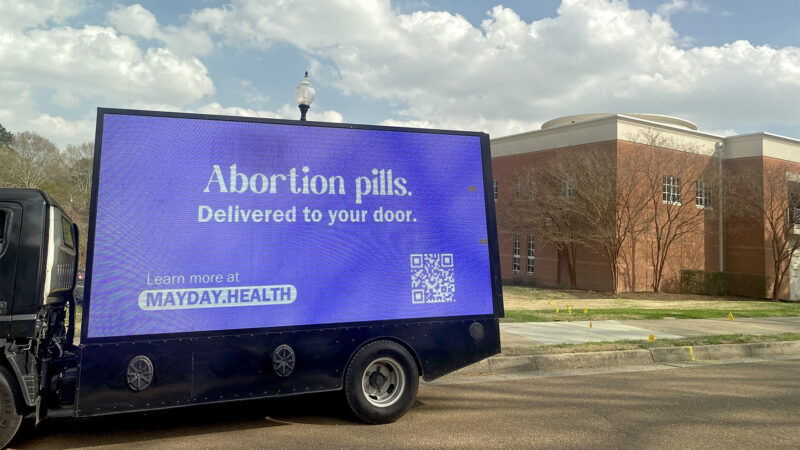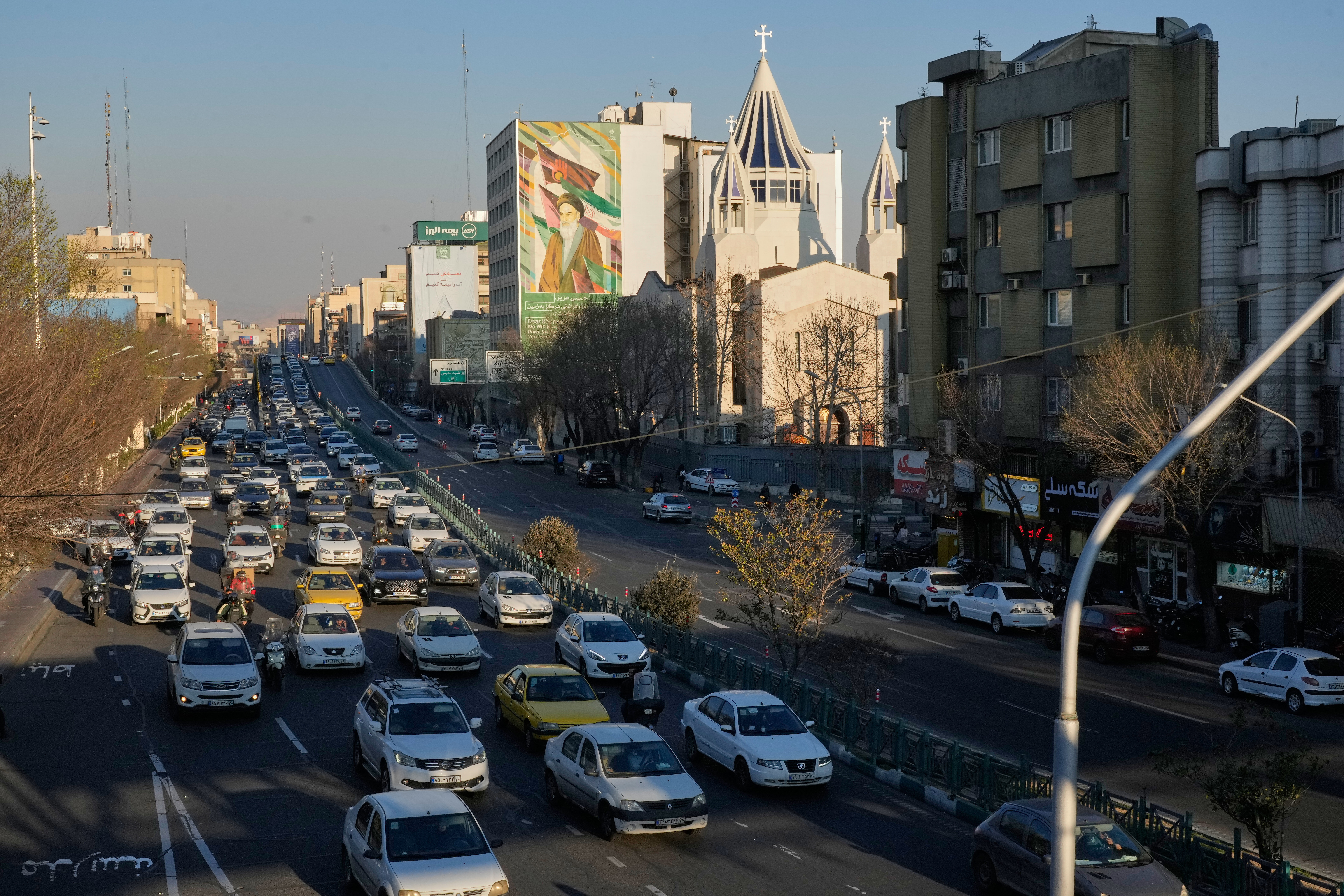These billboards want you to know how to get abortion pills — even if your state banned abortions
Mayday.Health visited Belhaven University on the first of a three-day tour, in Jackson, Mississippi, March 1, 2023. The mobile billboards promote how to safely order abortion pills and feature a QR code that directs people to resources specific to the state they want the pills delivered.
As Women’s History Month gets underway, mobile billboards are visiting college campuses in 14 states with abortion bans carrying a reminder that abortion pills are still accessible all across the country.
Mayday.Health, a nonprofit launched last year after legal abortions were heavily restricted or banned in 26 states, was created to provide information on where and how to safely order abortion pills. The traveling billboards are fitted with QR codes that direct people to resources specific to the state where they are hoping to have pills delivered.
The process can be cumbersome to navigate — involving forwarding mail between states, depending on abortion laws, or waiting weeks for an international prescription.
“We do not pretend that they are perfect,” said Dr. Jennifer Lincoln, executive director and president of Mayday. “We wish that everybody could just get these medications as easily as you can get Tylenol or Viagra in this country. Where there’s a will, there’s a way.”
Lincoln, an OB-GYN from Portland, Oregon, hopes that by showing up in states with strict abortion bans, these billboards will raise awareness that there are still options for reproductive care. Using her privilege as a health care provider in a protected state, she also wants to engage students and keep the momentum for the reproductive fight going.
Abortions have been banned in the Gulf States since last June, but access was already heavily restricted and inequities in reproductive health care overall run deep. Rural counties suffer from minimal access to health care, and maternal and infant mortality rates continue to be some of the highest in the country.
“In Mississippi and Louisiana, in Alabama, in these Gulf states, we know that in these areas we’re already struggling with access to care, with maternity care deserts — that people are already struggling to get the health care they need,” Lincoln said.
Lincoln said women do not have to wait for a crisis to order abortion pills or emergency contraception, but can order and store them “to know you’ve got this in your back pocket.”
The mobile billboard tour is happening against the backdrop of a lawsuit filed in federal court in West Virginia that could have national implications. GenBioPro, a manufacturer of one of the duo of pills taken for a medication abortion, argues it is unconstitutional for the state to ban the drug and that federal oversight takes precedence over state law.
While abortion pills remain illegal to prescribe in places with abortion bans, the Department of Justice maintains that it is legal to mail pills across state lines.
“It’s exhausting, but we are going to do it. We have to, because I look at my kids and these younger generations, and we won’t give up until we get our rights back,” Lincoln said.
The Mayday billboards will be traveling around these states with abortion bans over the coming days:
- Jackson, Mississippi
- Montgomery, Alabama
- Baton Rouge and New Orleans, Louisiana
- Nashville, Tennessee
- Austin and Dallas, Texas
- Augusta and Savannah, Georgia
- Little Rock, Arkansas
- Charleston, West Virginia
- Frankfort and Louisville, Kentucky
- Boise, Idaho
- Jefferson City and St. Louis, Missouri
- Madison, Wisconsin
- Oklahoma City, Oklahoma
- Pierre, South Dakota
Visit Mayday.Health online or on Twitter and Instagram for more information.
This story was produced by the Gulf States Newsroom, a collaboration between Mississippi Public Broadcasting, WBHM in Alabama, WWNO and WRKF in Louisiana and NPR. Support for reproductive health coverage comes from The Commonwealth Fund.
U.S. and Iran to hold a third round of nuclear talks in Geneva
Iran and the United States prepared to meet Thursday in Geneva for nuclear negotiations, as America has gathered a fleet of aircraft and warships to the Middle East to pressure Tehran into a deal.
FIFA’s Infantino confident Mexico can co-host World Cup despite cartel violence
FIFA President Gianni Infantino says he has "complete confidence" in Mexico as a World Cup co-host despite days of cartel violence in the country that has left at least 70 people dead.
Supreme Court appears split in tax foreclosure case
At issue is whether a county can seize homeowners' residence for unpaid property taxes and sell the house at auction for less than the homeowners would get if they put their home on the market themselves.
Top House Dem wants Justice Department to explain missing Trump-related Epstein files
After NPR reporting revealed dozens of pages of Epstein files related to President Trump appear to be missing from the public record, a top House Democrat wants to know why.
ICE won’t be at polling places this year, a Trump DHS official promises
In a call with top state voting officials, a Department of Homeland Security official stated unequivocally that immigration agents would not be patrolling polling places during this year's midterms.
Cubans from US killed after speedboat opens fire on island’s troops, Havana says
Cuba says the 10 passengers on a boat that opened fire on its soldiers were armed Cubans living in the U.S. who were trying to infiltrate the island and unleash terrorism. Secretary of State Marco Rubio says the U.S. is gathering its own information.







